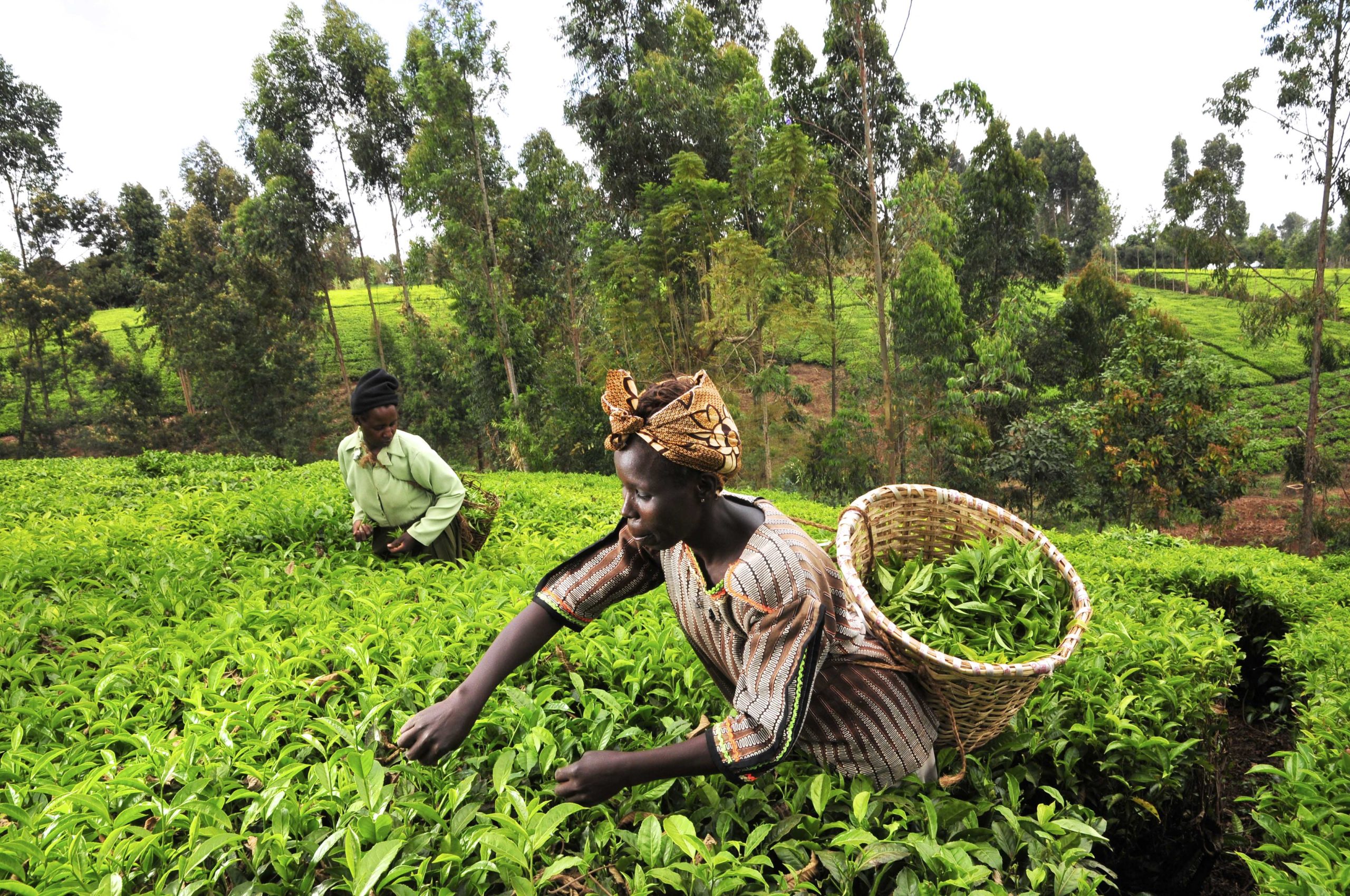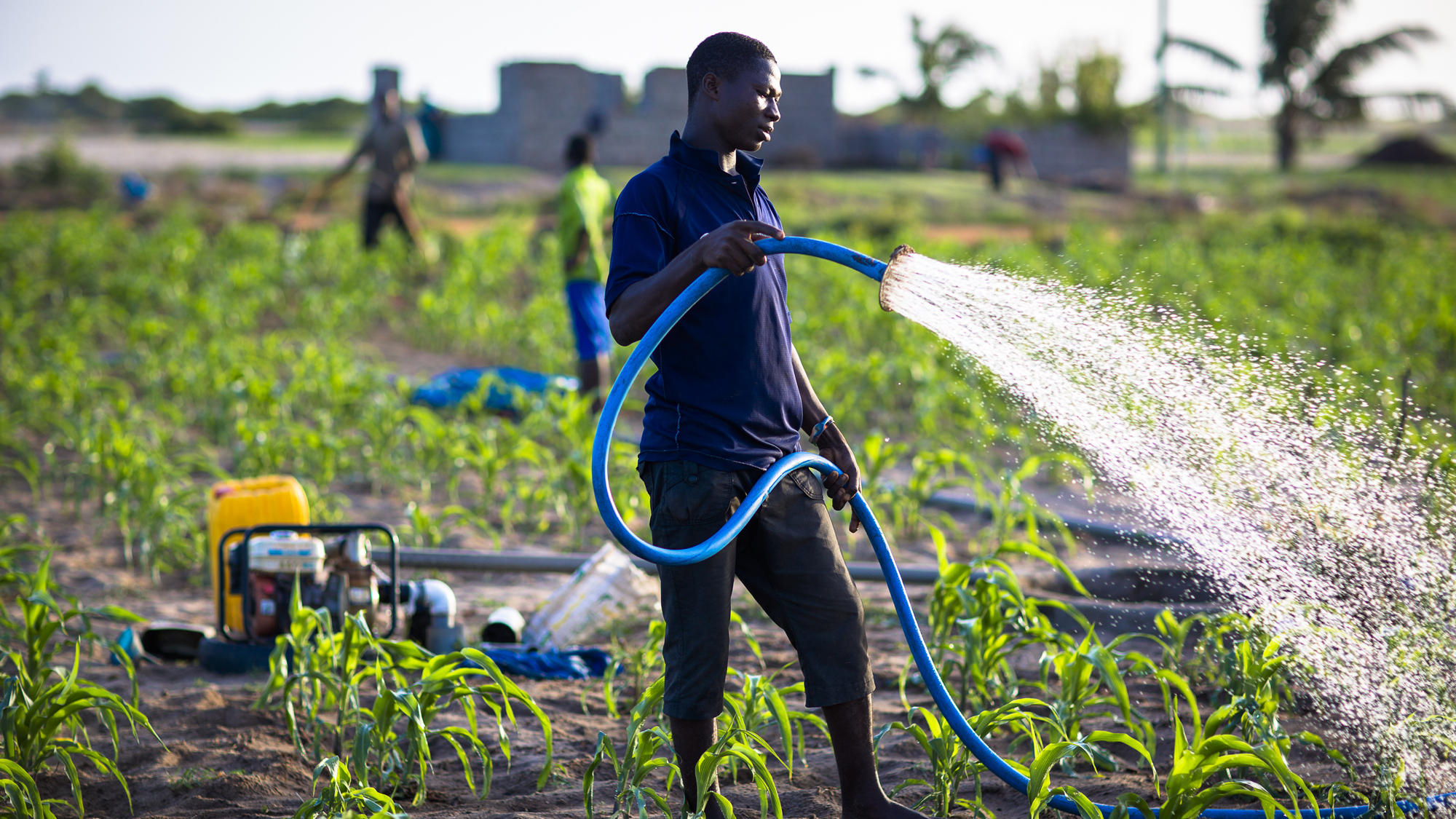Southern African farmers facing hunger as a result of worsening drought know a lot about climate change, but lack the resources to put solutions that work into place, agriculture and development researchers say.
That is in part because government agricultural extension services, which offer training and advice to farmers, have too few agents, according to a report by the Technical Centre for Agricultural and Rural Cooperation, based in the Netherlands.
In many cases, farmers are simply not aware of potential solutions, a senior programme coordinator with the centre, Mr Oluyede Ajayi, said on the sidelines of a regional meeting in Johannesburg on scaling up climate-smart agricultural solutions.
Such shortcomings are one reason an ongoing drought in southern Africa has left 23 million people dependent on food aid, with another 13 million in need of help, according to the Southern African Development Community, which launched a $US2.8 billion emergency appeal in July.
“But a new regional push, focused on promoting four key actions to adapt agriculture and curb growing hunger, could help,” Mr Ajayi said.
The best ways to assist southern Africa’s farmers, agricultural experts said, were to increase their access to insurance for crop failure and livestock deaths, and giving them better weather advice via mobile phone.
“Helping them diversify their sources of income also was key,” they said, “as was developing stress-tolerant seeds and better ways of managing land to conserve water.”
One way of diversifying incomes and reducing risk, researchers said was for farmers to raise fewer cattle and more drought-resistant animals such as chickens and goats – or even protein-rich insects. Many farmers, who pride themselves on their cattle, have so far resisted that switch.
“Goats, sheep and chickens are considered animals that can take care of themselves, unlike other animals,” Mr Shikhalazo Dube, a southern African representative of the International Livestock Research Institute said.
Southern Africa so far this year has lost over 630,000 cattle, worth an estimated $US220 million, to drought, according to the UN Food and Agriculture Organisation.
That money could have been saved if farmers had taken out insurance on their livestock, slaughtered them early in the face of drought warnings or found ways to feed them as pastures dried up, said Godwin Mashiri, a micro-insurance expert with mobile phone company Econet Wireless, based in Zimbabwe.
“But persuading farmers to buy indexed insurance, which provides payouts when certain weather triggers are reached – such as a certain number of days without rain – remains a struggle,” he admitted.
“Farmers in southern Africa have mobile phones and may be aware of weather index insurance products offered via mobile phones but their lack of understanding of and trust in insurance products meant they suffered losses when they could have taken some insurance on their livestock,” Mr Mashiri said.
In Zimbabwe, some farmers in Mashonaland East Province have adapted to the dryer weather by growing drought-resistant feed for their livestock, such as cowpea or velvet beans, alongside maize, the region’s staple crop.
The project, funded by the Australian Centre for International Agricultural Research, had helped dairy farmers keep animals alive and helped them avoid buying costly commercial feed to get their animals through the drought, Mr Dube said.
“Similarly, farmers who are growing stress-tolerant maize using water-conserving techniques have seen their harvests rise by as much as 130 per cent,” Mr Christian Thierfelder, an agronomist with the International Maize and Wheat Improvement Centre (CIMMYT), told the Thomson Reuters Foundation.
“But most farmers in southern Africa have been slow to make the switch,” he said, “because of lack of knowledge about the options or lack of capacity, such as access to seeds or needed machinery. Some also worry about controlling weeds under the new system, which reduces plowing of the soil.”
“Globally,150 million hectares of crops are grown under “conservation agriculture” techniques, but only 10 per cent of small-scale farmers in southern Africa have adopted them,” Mr Thierfelder said.
Such climate-smart agriculture is seen as key to helping farmers survive weather shocks, adapt to climate change and improve food security, according to the UN Food and Agriculture Organisation.









